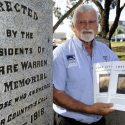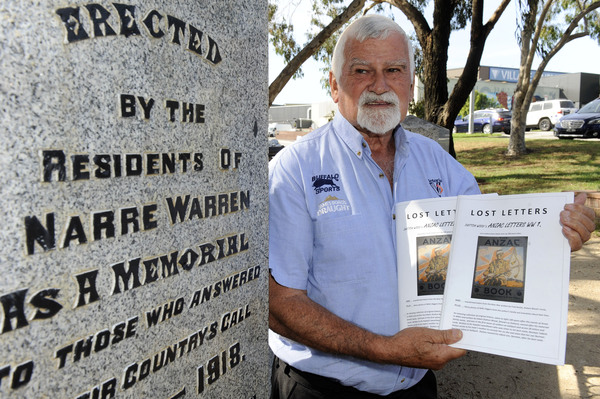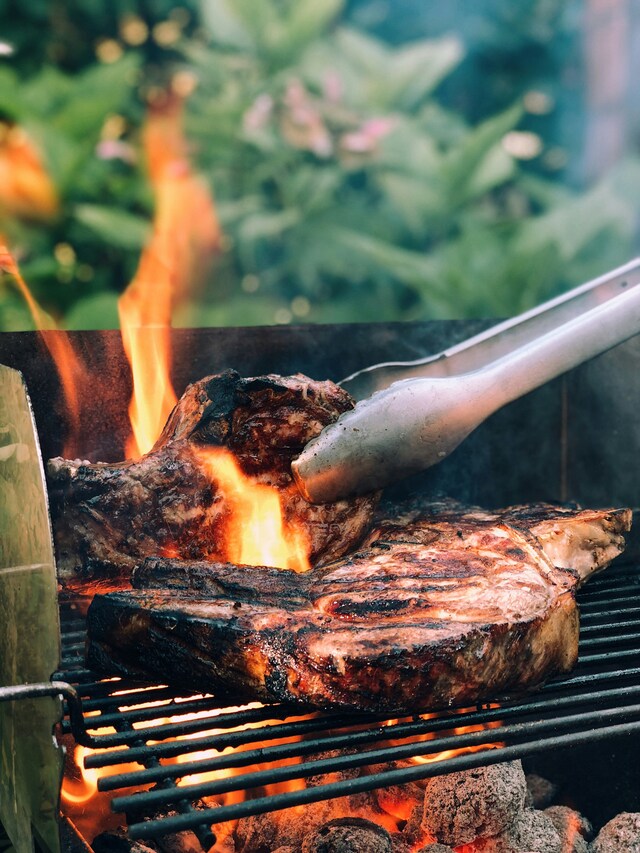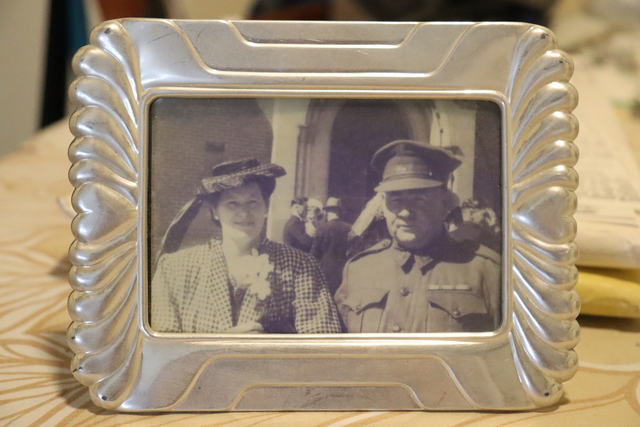By Cam Lucadou-Wells
A chance find in a set of drawers has unearthed an Anzac soldier’s 100-year-old letters to a woman he hoped would be his sweetheart.
Former Casey mayor Rob Wilson, of Narre Warren, has self-published more than 20 of the discovered letters and cards of Sergeant Dudley Wood in his book Lost Letters.
The World War I letters were written by Sgt Wood to Edie Talbett – the sister of his best mate Norman. More than a muse, she was also someone that Sgt Wood was keen upon.
“How many other young blokes over in the war had a girlfriend back home?” Mr Wilson said.
“And they hope against hope not only that they survive, but that they still have a girl if they get back.”
At 72, Mr Wilson, a keen family historian, had recently collated primary history into books about his Scottish-immigrant father and his triple-great-grandmother.
“I was excited that these letters written 100 years ago were now discovered 100 years later.
“I have a study full of history stuff.
“If I give all of that to one person, it will probably get thrown out, so I decided to put that history into a book.“
In this most recent collection, Sgt Wood’s letters reveal a “feisty” relationship with Edie. Ultimately, they both married other people.
He moved to the Tasmanian city of Launceston, had a family with an Irish nurse Martha Shannon who cared for him during the war, and worked as a dental technician.
On 2 January, 1917, he wrote – rather flippantly – to Edie that he lost his right leg just above the knee. The injury caused lingering pain and dashed his hopes of being a dentist.
“A bit of stiff luck but worse things happen at sea,” Sgt Wood wrote.
“Now take my advice, stick to your own legs. Don’t go out for a walk and lose them as it is a painful thing, but if you give any cheek, I will be able to swipe you with it.”
There was then a break in Sgt Wood’s letters to Edie. He put it down to getting such a shock hearing that she was engaged.
“Allow me to congratulate you on having such a good fellow, but of course, it has been a great blow to me.
“I have had my eye on you for a long time now, but I have been too shy to pop the question and now it is too late.”
Sgt Wood was wounded during the AIF’s first landing in Gallipoli in April 1915.
According to an extract from Sgt Wood’s journal, he “got a bullet through my cap; then shrapnel took my rations; later a bullet bored a hole in my mess tin, and I was struck in five places by shrapnel.”
He convalesced from his wounds during a “holiday” in Malta in May, and wrote to Edie: “We got some hurry up the first day as we landed under fire and had to take every foot of ground while we had no artillery to back us up.
“You have no idea what it is like till you are there to see for yourself.
“You will hear all about things in the papers I suppose, so it is no good me telling you, but you get more excitement out of it than shooting at rabbits.”
He was awarded a Distinguished Conduct Medal for conspicuous bravery.
On 20 August 1915, Sgt Wood solemnly wrote to his best friend Norman’s mother to offer his “deepest sympathy”.
He told her that Norman had died, minutes before he was due to be relieved of his post at Lone Pine, Gallipoli.
A photo of Norman’s grave “in sight of the sea on the first hill” at Gallipoli was taken by Sgt Wood and sent to the bereaved mother.
Norman and he had been among the first Australians to enlist for the war.
In reply to Edie, he writes in October about finding out about her late brother Norman’s demise.
“It broke me up for the rest of the day, and we have lost a good pal, but he is as well off as here, and one never knows whose turn it will be next, just as God wills.”
The letters were recently found among papers in a set of drawers by Edie Talbett’s grand-daughter, Patricia Greenwood-Smith.
She contacted Sgt Wood’s daughter-in-law Betty in Launceston, who in turn excitedly told her cousin – the book’s author Mr Wilson.
In his book, Mr Wilson has added letters written by Sgt Wood’s brother Vasey, who also fought in World War I where he was killed.
There are also letters, photos and biographies of Mr Wilson’s relatives who performed military service, including George Connelly Hazlett – a Boer War veteran and a World War I Lighthorseman who fought in the famous charge in Beersheba.
Mr Wilson has more family history projects on the go. For him it’s a race to get as much down in books before that history is cast away.









